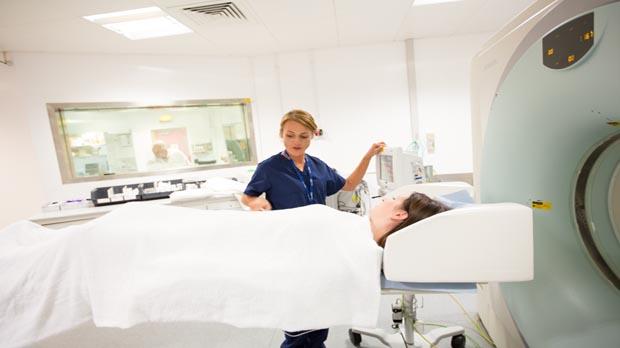
Around 1 in 5 people diagnosed with cancer in the UK take part in a clinical trial.
This study tested a new quality of life questionnaire for older people with cancer, to add to the general one you may fill out if you take part in a cancer clinical trial.
When doctors look at how well a new treatment works, one of the most important areas they think about is how it will affect people’s health and  . So people often fill out a questionnaire before, during and after treatment. This asks them about any side effects they have had, and how they have been feeling. It is called a quality of life questionnaire. Years ago, the European Organisation for Research and Treatment of Cancer (EORTC) developed a general questionnaire for all cancer patients taking part in clinical trials. It is called the EORTC QLQ C30, and aims to help medical professionals understand more about these experiences.
. So people often fill out a questionnaire before, during and after treatment. This asks them about any side effects they have had, and how they have been feeling. It is called a quality of life questionnaire. Years ago, the European Organisation for Research and Treatment of Cancer (EORTC) developed a general questionnaire for all cancer patients taking part in clinical trials. It is called the EORTC QLQ C30, and aims to help medical professionals understand more about these experiences.
But older people with cancer have different issues to younger people with cancer. So EORTC designed another questionnaire called EORTC QLQ ELD15, which doctors can use alongside the original. This new questionnaire aimed to find out about issues faced by older people with cancer.
They wanted to test how well the questionnaire worked. They recruited a wide range of older people with cancer, including people with different types of cancer, at different stages and having different treatments. They hoped that this new questionnaire was able to measure the effect of the disease and its treatment and care on the quality of life of older people with cancer.
The study team found that the new questionnaire is an acceptable, quick and reliable way to measure the quality of life of older people with cancer.
This international study recruited 518 people from 10 countries around the world. It recruited people over the age of 70 with different types of cancer. It included those who were having treatment aiming to cure their cancer and those having treatment to control symptoms.
After completing the QLQ ELD15, the people did a short questionnaire about filling it in. The questionnaire asked
461 people completed this questionnaire. Of these 461
Of the 15 items in the QLQ ELD15, the researchers found 1 that was a problem. This was due to its wording and content. They took this item out and the questionnaire is now QLQ ELD14.
The study team concluded that the new questionnaire aimed at older people is suitable and acceptable and can be used with the original questionnaire to measure the quality of life of older people with cancer.
We have based this summary on information from the team who ran the trial. The information they sent us has been reviewed by independent specialists ( ) and published in a medical journal. The figures we quote above were provided by the trial team. We have not analysed the data ourselves.
) and published in a medical journal. The figures we quote above were provided by the trial team. We have not analysed the data ourselves.
Please note: In order to join a trial you will need to discuss it with your doctor, unless otherwise specified.
Mr Colin Johnson
European Organisation for Research and Treatment of Cancer (EORTC)
National Institute for Health Research Cancer Research Network (NCRN)
University Hospital Southampton NHS Foundation Trust
If you have questions about the trial please contact our cancer information nurses
Freephone 0808 800 4040

Around 1 in 5 people diagnosed with cancer in the UK take part in a clinical trial.